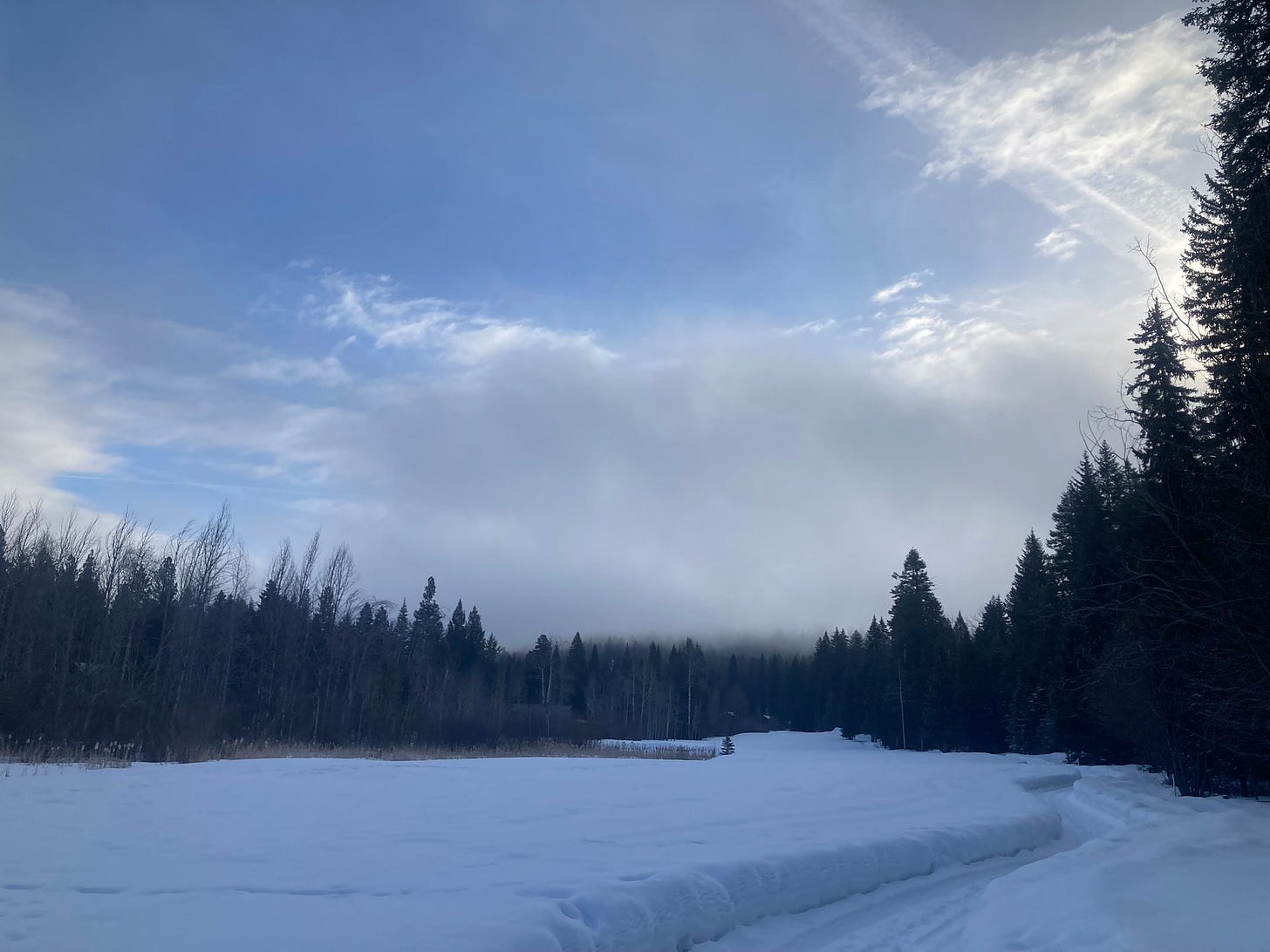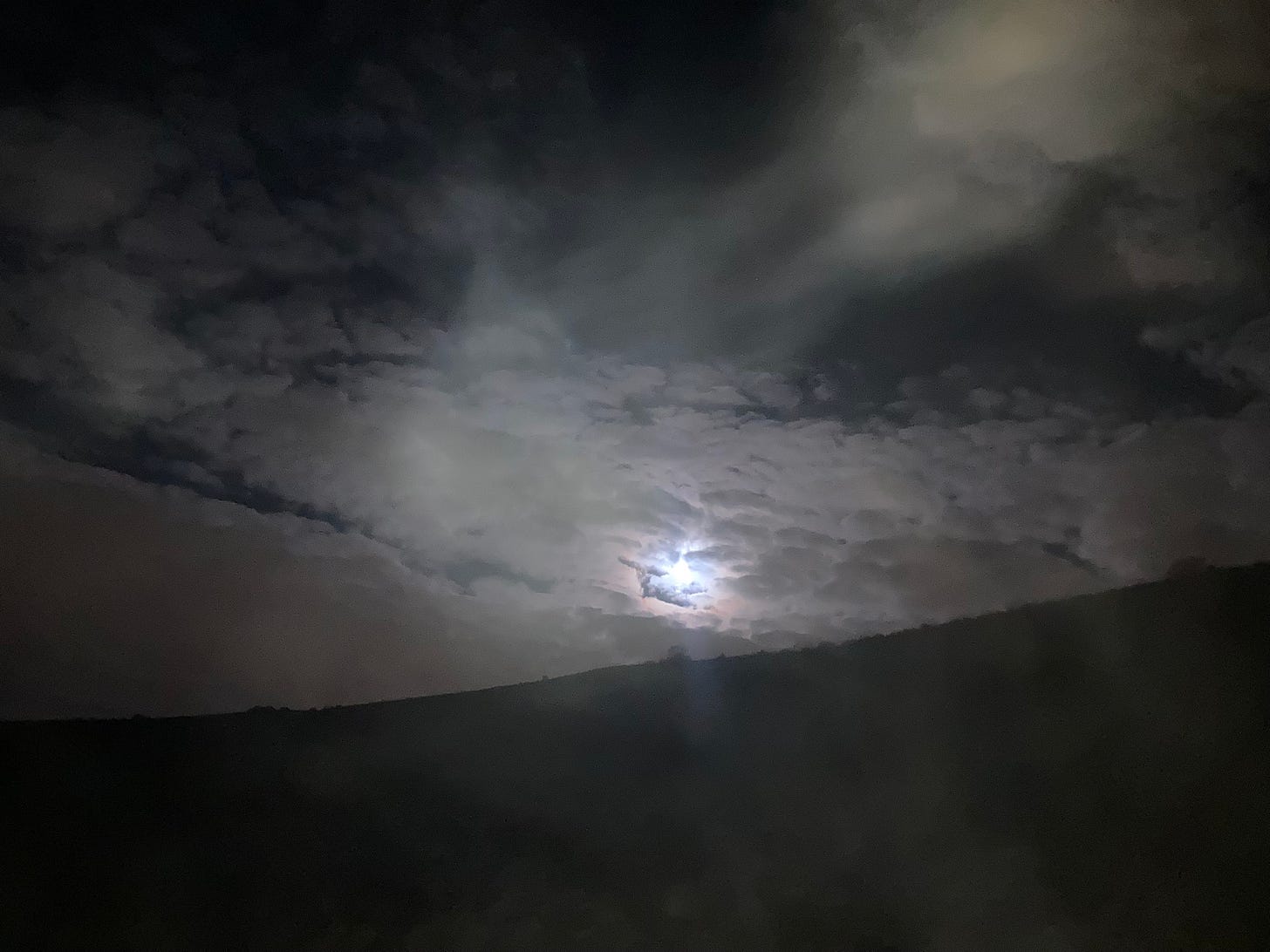I have a dear friend who sits down with all of her journals and assorted notebooks at the end of every year [hi, Genny!]. She dedicates intentional time to reread words of her own she wrote re: the year behind her before she starts thinking about goals and dreams and playful schemes for the year ahead.
It's a year-end routine that makes a lot of sense to me, something I find notably inspiring, and it’s something I've been adding to my own regular creative practice: Making room for review, for revision, for sitting with what I think, and what I think is working (and what isn't), and seeing what needs to change before moving forward, before I take the next best step.
I really enjoy setting quarterly intentions, both creatively and professionally (quite often they’re braided goals), and using the end of one quarter for substantial reflection before diving headfirst into the next three months.
As someone who routinely finds herself wishing she had time and energy to live ten simultaneous lives so as to be able to chase as many vibrant threads of interest as possible, thinking about everything I want to do and see and be in a single calendar year can become overwhelming rather quickly.
Breaking the year down into four distinct(ly interconnected but separate) three-month segments feels much more approachable—soothing, even. It makes everything I want to do feel more possible, more readily available, especially as quarters tend to naturally align with seasons of the year and corresponding ebbs and flows of collective and individual energy.
It’s also come in pretty handy as the entire first quarter of our 2024 was derailed by Disaster Water. We’re home now, getting to sleep in our bed exactly two months from the day I first heard water rushing through our walls, and daily we’re revisiting our space, coming up with altogether different, and in so many places better, ways to utilize the little home we have.
We’re rethinking what we need and what we don’t, and with that comes creativity, comes gratitude, comes a resolute determination to do altogether more with less.
It also means we’re revising expectations of what this spring looks like for us, what the rest of this year will look like, what our day-to-days look like. Some days we have to-do lists that feel altogether unruly and utterly unfair. Some days we listen to our bodies shouting for R E S T. Some days we accomplish absolutely everything we set out to do, and then we celebrate. (We celebrate resting, too. We’re celebrating everything right now, forever.)
I love thinking about the art of re-reading, reviewing, and revising as integral parts of our daily creative practice, just as they're integral parts of bringing pieces of vibrant writing into the world.
The art of re-reading is the art of listening—to words on the page, and to ourselves.
The art of revision is the art of listening to our stories.
Just like a beloved recipe takes a bevy of tiny and more substantial adjustments—countless iterations until that first bite sends goosebumps careening down your arms—rarely do our stories come out of our heads and hearts and onto the page fully formed. Which is of course why so many forms of writing and publishing involve multiple editors and sets of eyes making multiple passes of a manuscript (or a short story, or a poem) before anything is deemed "finished" enough to print.
One of my favorite quotes by the late, endlessly great Rachel Carson is centered on revision:
“Given the initial talent…writing is largely a matter of application and hard work, of writing and rewriting endlessly, until you are satisfied that you have said what you want to say as clearly and simply as possible. For me, that usually means many, many revisions.” ― Rachel Carson
Being able to look at our own work and our own desires objectively is a challenge, and a superpower once we hone the skill.
I like what re-reading and revision makes room for, too: We're allowed to make mistakes; we're allowed to change our minds, change directions, change something entirely if we feel like it / if changing something makes our stories better, more vibrant, more true.
WRITING PROMPTS TO EXPLORE REVISION
Inspired by school-wide assemblies of yore.
Reduce. Pick a piece of writing you already have and spend some time shrinking it in size. That doesn't mean shrinking it in scope or potency; in fact, many authors (and editors and readers) the world over often assert "less is more." Say what you want to say, but see what it takes to say it in fewer lines than you currently have it written.
Reuse. Pick a line or an image or a fledgling idea you've written in the past year (anything that resonates with you) and use it as a foundation for something new.
Recycle. If you have a piece of writing that you first intended to be a poem, or a random character/scene sketch, or a piece of a personal essay, what would it look like if you transformed it into something else entirely? A poem becomes a paragraph of prose, perhaps, or a letter you wrote becomes a haiku. Get playful with it!
I always recommend sitting with each of these prompts for at least ten minutes at a time. Set a timer and try to keep writing for ten minutes without stopping or self-editing or even trying to steer yourself a certain direction. I’m a firm and longtime believer that when it comes to prompts like these, wherever you end up on the page is precisely where you’re meant to be.
Recommended reading for the month ahead:
"Be More Like Björk" by Camille Guthrie
“Nothing to Worry About” by Remi Kanazi
"An Aspect of Love, Alive in the Ice and Fire" by Gwendolyn Brooks
"Sorrow Is Not My Name" by Ross Gay
"On the Loss of Energy (And Other Things)" by June Jordan

A little bit of backstory about Kerrtopia & the woman behind the words:
A lifelong writer, enthusiastic English Lit major (see also: I read a lot), and fan of learning something new every day, I wanted a dedicated space to share more writing-specific thoughts and prompts more regularly. By day I work for an indie nonfiction publisher, and by night (among other things) I lead a quarterly writing workshop called DIVE via Creative Fuel Collective—you can learn all about it and sign up to be kept in the loop for future offerings right here.
Registration is open right here for DIVE’s upcoming cohort [April-June 2024]. The first session doesn’t start until April 29 and we still have a few spots left yet, so if you’re interest is piqued, hop off the fence and join us! Have questions about the sessions? Odds are good I have answers. Please reach out!
Do you know someone who would benefit from receiving regular writing prompts to their inbox, who might delight in reading some intentional rambles about words and water and the power in finding our respective and collective (voices +) senses of place?
I’d love it if you’d share this post and Kerrtopia with them.
Kerrtopia is a free offering, though I've turned on paid subscriptions for this newsletter if you have the means to support it now or anytime in the future. It's not necessary to pay to read, but it is of course very much appreciated. I’ll likely be adding some special content for paid subscribers down the line. Thanks for reading, and for your ongoing support. I’m grateful you’ve found me here, grateful we’re here together. You can also find me on Instagram.





